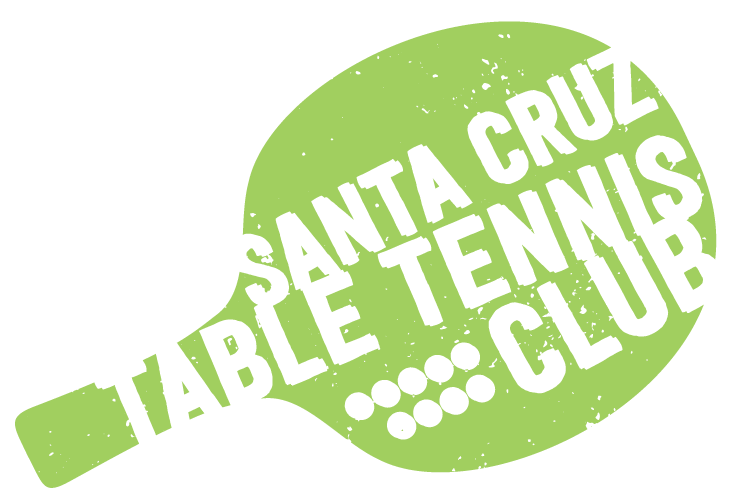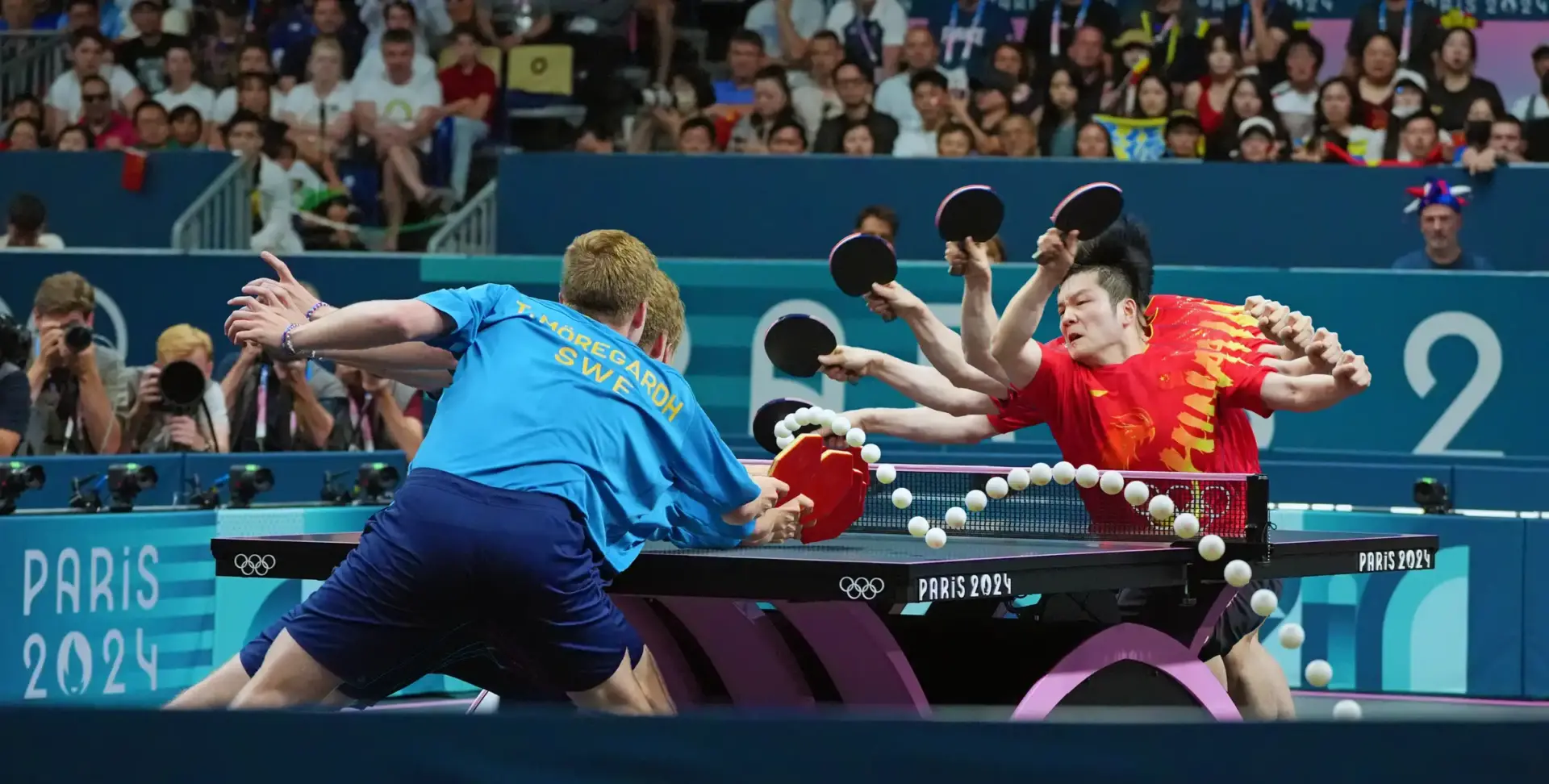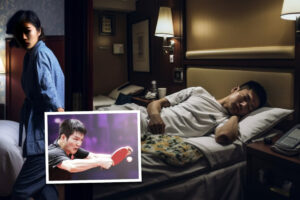In the media
Ping pong bot returns shots with high-speed precision
Joining the crowd of non-table tennis companies, MIT is working on ping pong bot.
New international table tennis association launched: United Table Tennis Players

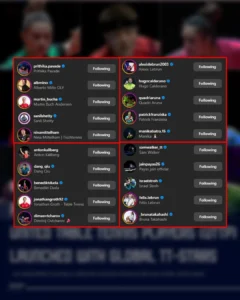 Due to various issues with WTT and ITTF, a new table tennis association hopes to start fresh for 2025 and beyond. Big names have already joined.
Due to various issues with WTT and ITTF, a new table tennis association hopes to start fresh for 2025 and beyond. Big names have already joined.
Ping Pong meets Modern Art at SFMOMA
This wacky 4-way table is currently on display (and for play!) at SFMOMA up in San Francisco. From the Court to the Canvas: Get in the Game at SFMOMA, through February 18, 2025.
Fun composite image from Paris 2024 Olympics
No, You Can’t Beat an Olympic Table Tennis Player
Brazilian table tennis star headed to both the Olympics and Paralympics
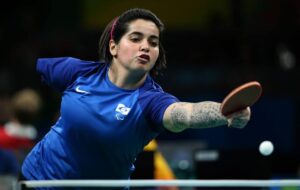 Nice radio/audio story about Brazilian table tennis star, Bruna Alexandre, only the fourth person ever to play in both the Olympics and Paralympics.
Nice radio/audio story about Brazilian table tennis star, Bruna Alexandre, only the fourth person ever to play in both the Olympics and Paralympics.
Article: Ping pong players exhibit superior brain structure and function, study finds
Fan of Fan Zhendong stole his underwear
This is likely to be the strangest table tennis related story of the year. Apparently, top Chinese players have some serious fans.
South Korean “table tennis entertainment show”, All Table Tennis!
I think this might be the first completely TT-related TV show. Click links with “SUB” for English subtitles.
